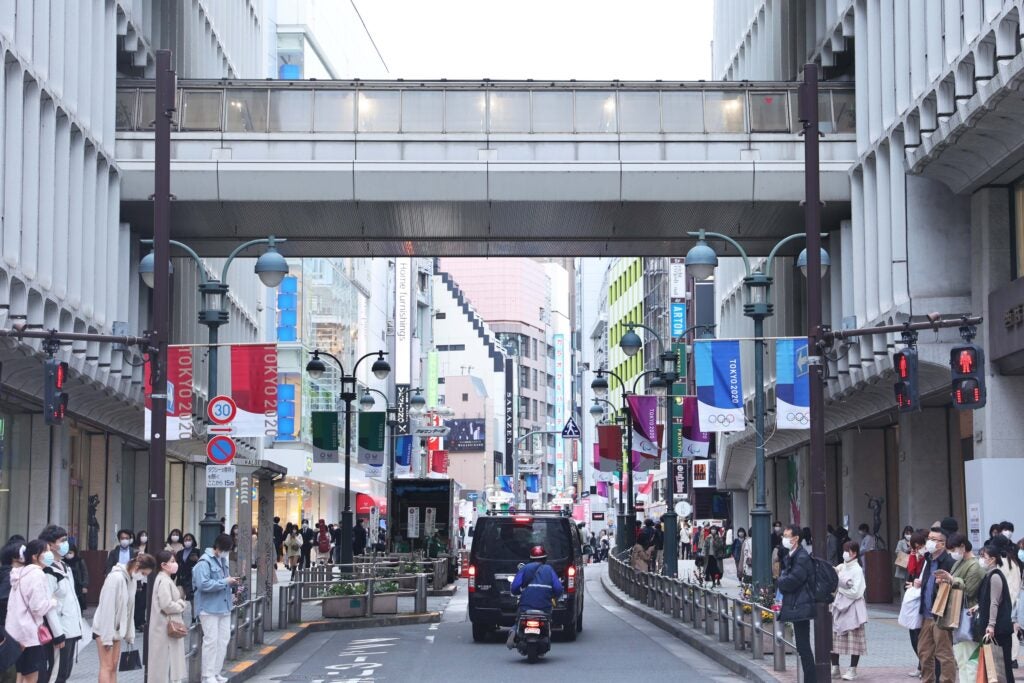In Japan, where fewer people are marrying, even fewer are having kids, and the average citizen is nearly 50 years old, Tokyo is trying something drastic: cutting the workweek.
As of April, the Tokyo Metropolitan Government began offering employees the option to work four days a week instead of five. It’s one of the most sweeping changes to Japan’s rigid work culture in decades—and it’s not just about flexibility. Tokyo Gov. Yuriko Koike said the policy is part of a broader effort to keep people from abandoning their careers when real life hits.
Don’t Miss:
“We will continue to review work styles flexibly to ensure that women do not have to sacrifice their careers due to life events such as childbirth or child-rearing,” Koike said during a speech at the Tokyo Metropolitan Assembly’s regular session last December, The Japan Times reported.
The new system upgrades the city’s old flextime model, which previously allowed workers to take one weekday off every four weeks. Now, eligible employees can take one day off every week, giving them a consistent three-day weekend. A separate “childcare partial leave” program will also allow some staff to shorten their daily hours by up to two.
These policies are rolling out against a sobering backdrop. Between January and June, Japan recorded just 339,280 births—down about 10,000 from the same stretch last year, according to the Ministry of Health, Labor, and Welfare. Tokyo’s fertility rate is now at 0.99. Nationally, it’s only slightly higher at 1.2. For a population to sustain itself, the number needs to hit 2.1.
Trending: Buffett’s Secret to Wealth? Private Real Estate—Get Institutional Access Yourself
Japan’s average age, according to CIA data, is 49.9. That’s the oldest in the world.
But the problem isn’t just biological. It’s cultural. Marriage rates are plummeting. Fewer young people are dating. And earlier this year, Tokyo’s government did something no dating app startup ever could: it launched its own platform to match singles who are seriously considering marriage, according to Fortune. Applicants must verify their identities and confirm that they’re actually looking to settle down.
Koike also pointed to other initiatives like support for egg freezing and easing the shortage of nursery school slots. “Empowering women, a goal that has lagged far behind the rest of the world, has been a long-standing issue in our country,” she said in the same assembly session, adding that flexible work is key to building “a future where both men and women can thrive.”
It’s not just Tokyo moving in this direction. Miyagi Prefecture also announced a plan to expand its own four-day workweek option by fiscal 2026. And back in May, Japan’s national parliament passed revisions requiring larger companies to offer flexible working arrangements for employees with young children—starting in April. These include work-from-home options, reduced hours, and mandatory disclosure of paternity leave statistics for companies with over 300 workers.
See Also: Wall Street’s $12B Real Estate Manager Is Opening Its Doors to Individual Investors — Without the Crowdfunding Middlemen
Meanwhile, in the U.S., the four-day movement is picking up attention from Sen. Bernie Sanders (I-VT), who in March 2024 pushed for a 32-hour workweek with no reduction in pay. He pointed to decades of productivity gains and argued that American workers deserve more time off without sacrificing income. “It is time to reduce the stress level in our country and allow Americans to enjoy a better quality of life,” he wrote in a CNN op-ed.
That proposal hasn’t gained much traction on Capitol Hill. But Tokyo’s move shows just how far some governments are willing to go—not just to ease burnout, but to keep their population from shrinking out of existence.
In Japan, the future of work may not just be about Zoom calls or shorter hours. It might be about survival.
Read Next: From Chipotle to Red Bull, Top Brands Are Already Building With Modern Mill’s Tree-Free Wood Alternative — Here’s How You Can Invest Too
Image: USA Today Sports


AloJapan.com